Prof. S.C. Bhattacharya Award for Excellence in Research in Pure Sciences (2024) (2025/04/04)
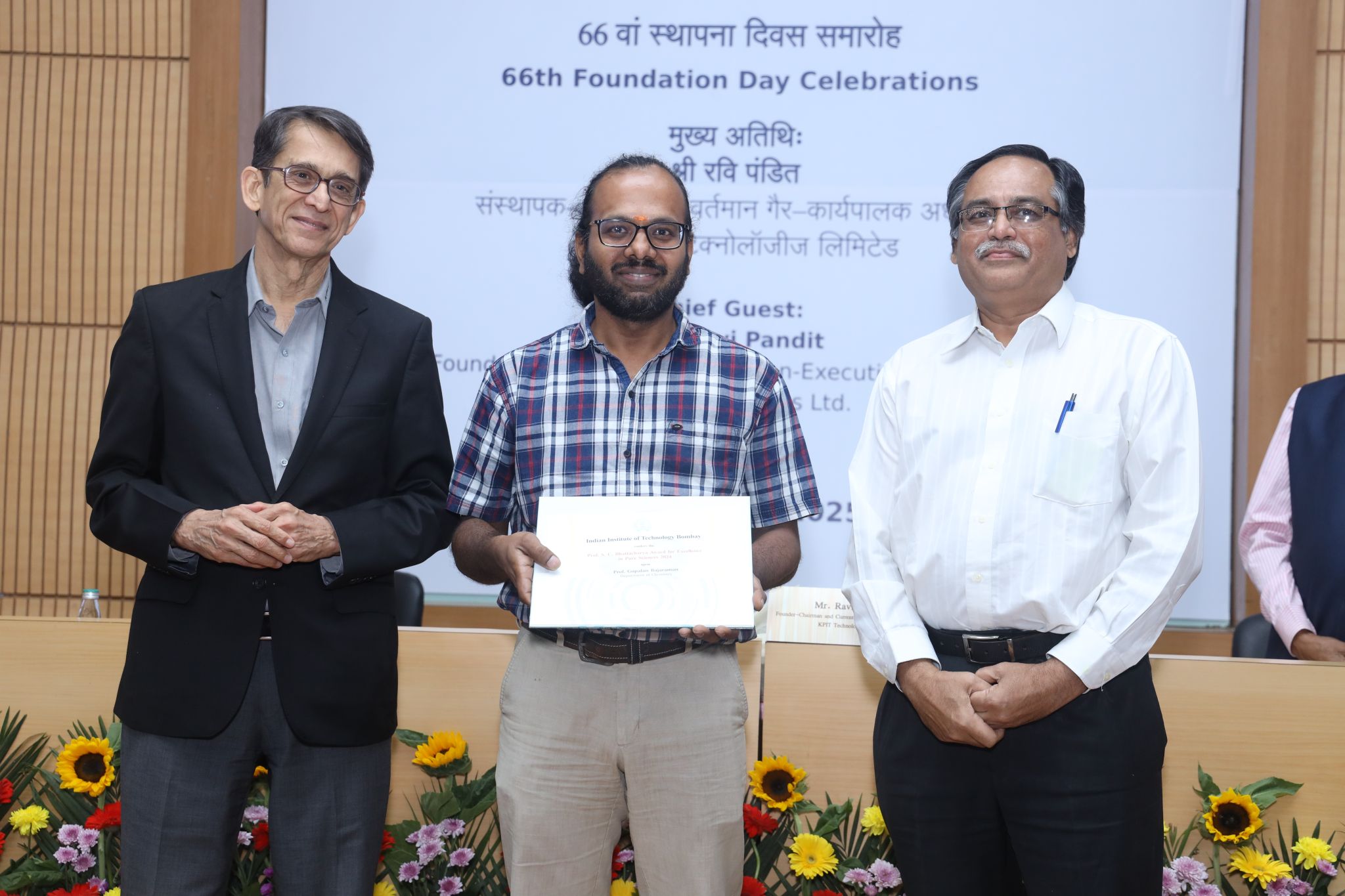
|
The 'Prof. S.C. Bhattacharya Award for Excellence in Research in
Pure Sciences (2024)' was conferred on Prof. Gopalan Rajaraman,
Department of Chemistry for his outstanding contributions in the
areas of Molecular Magnetism, Bioinorganic Chemistry,
Spintronics and Catalysis.
More details here. |
Eugenio Coronado receives the JSCC International Award from the Japan Society of Coordination Chemistry (2025/03/10)
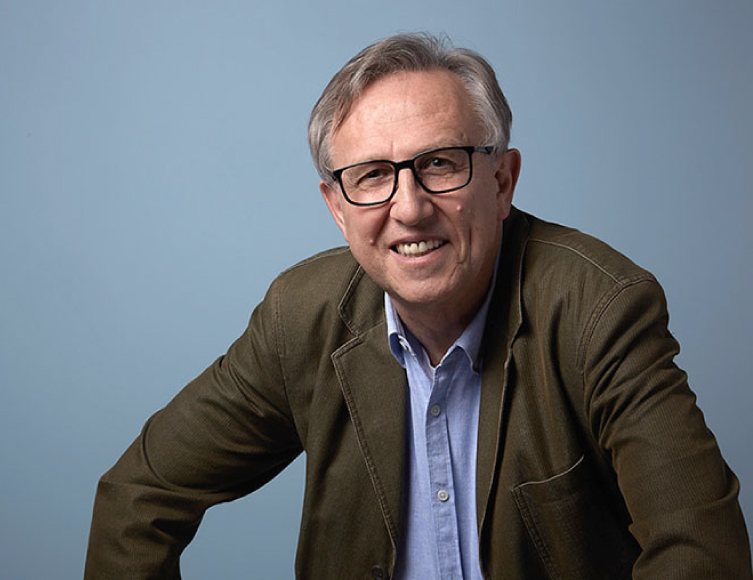
|
The Director of the Institute of Molecular Science (ICMol) at
the University of Valencia, Professor Eugenio Coronado, has been
awarded the JSCC International Award, one of the most
prestigious recognitions in the field of coordination chemistry,
granted by the Japan Society of Coordination Chemistry (JSCC).
More details here. |
Stephen Blundell receives the Lawrence Bragg Medal (2024/10/15)
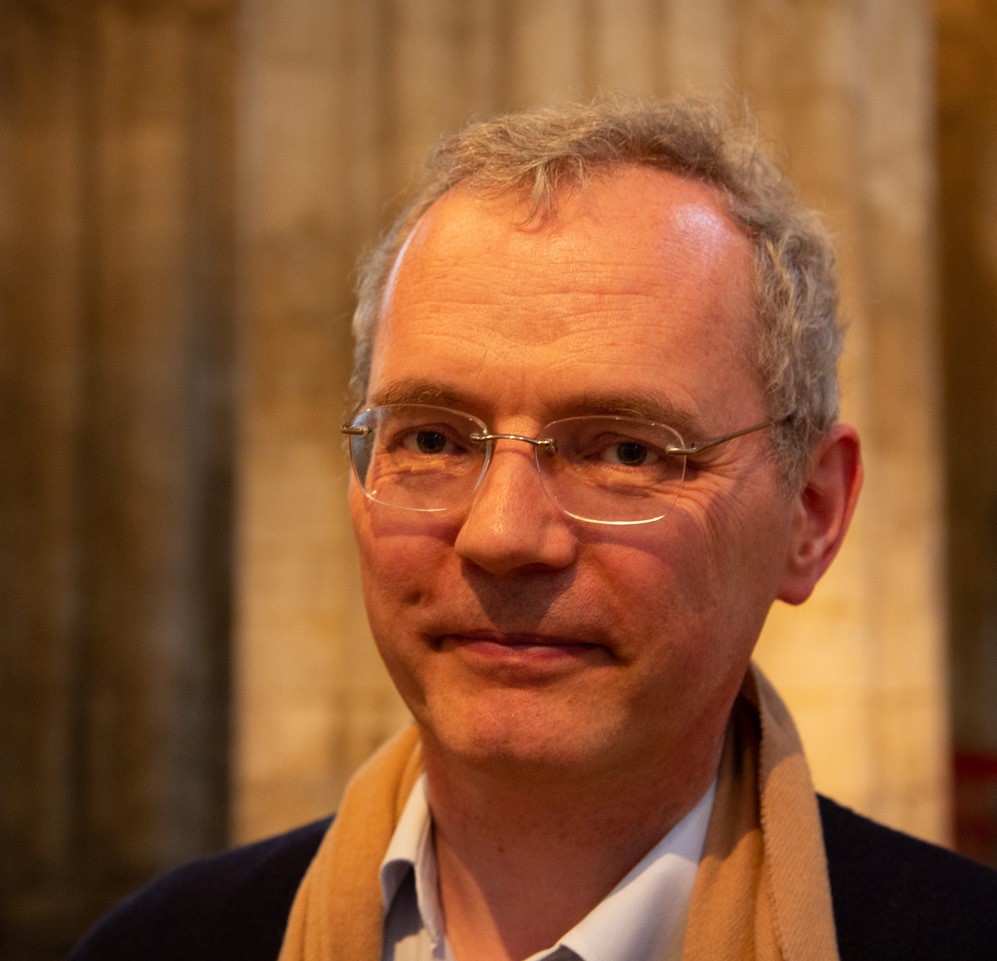
|
Professor Stephen Blundell receives the Lawrence Bragg Medal
and Prize for contributions to physics scholarship and education
through the publication of widely used and influential physics
textbooks.
"Our Gold Medals recognise outstanding and sustained contributions by physicists of international renown to a wide range of physics." (Institute of Physics) |
Bruker Prize Lecture 2025 (2024/08/19)
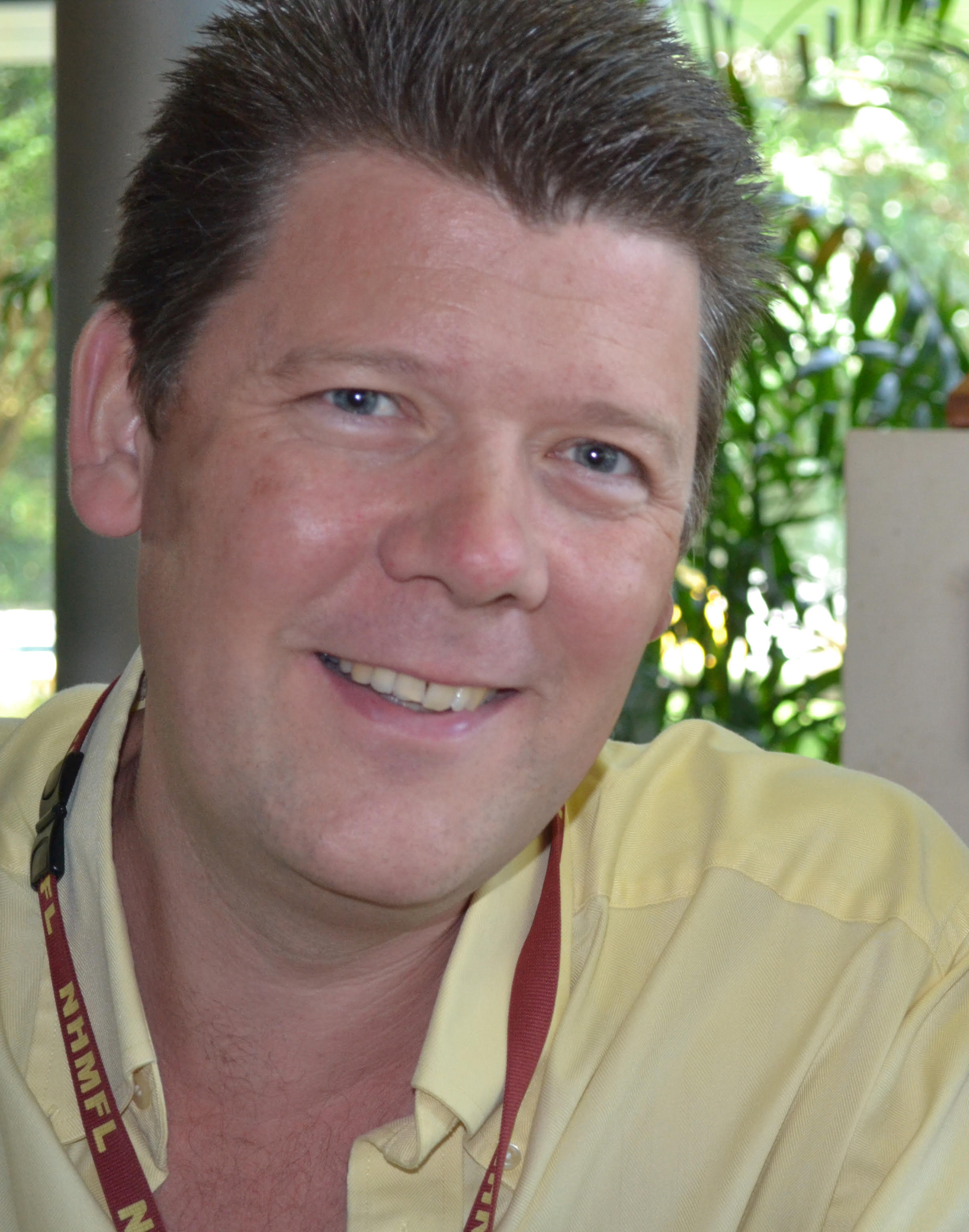
|
The RSC ESR Spectroscopy Group and Bruker are excited to announce the Bruker lecturer 2025 Professor Stephen Hill, see here. Congratulations! |
Kasper takes it all (2024/08/19)
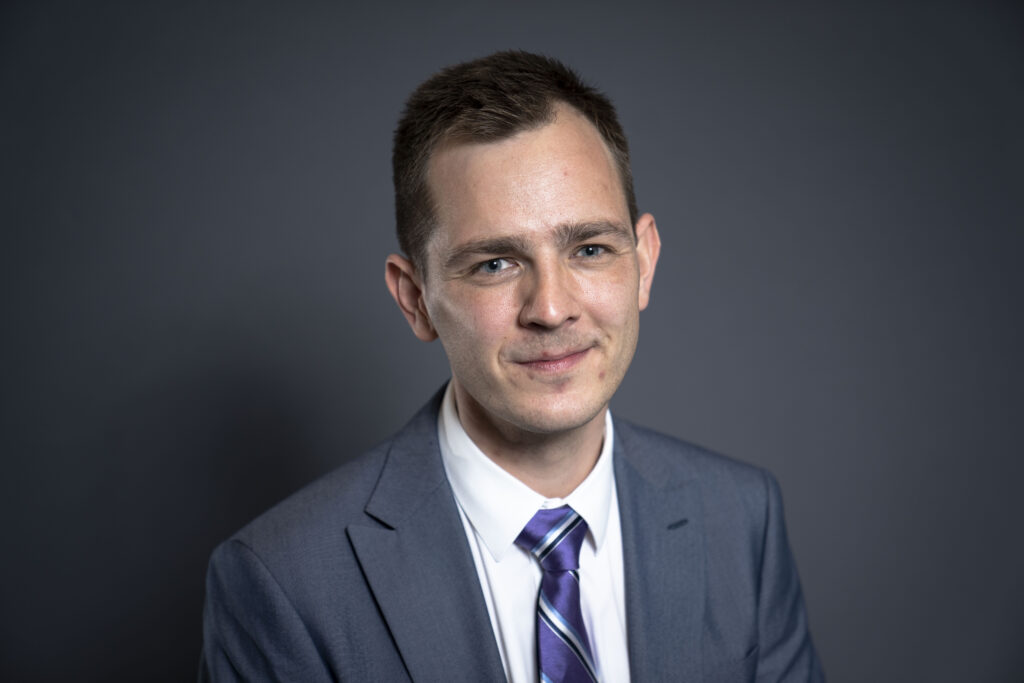
|
Prof. Kasper Pedersen was awarded the Olivier Kahn International Award as well as the Bjerrum-Brønsted-Lang Prize & Lectureship 2024. Congratulations! |
PhD position at the University of Parma – MSCA Fellowship (FutureData4EU COFUND project, 2024/05/16)
The spin quantum science group at the University of Parma (https://www.spinquantumscience.unipr.it/) is seeking a talented and highly motivated candidate for a PhD project on “Spin Systems for Quantum Technologies”. The position is co-funded through the FutureData4EU Marie Sklodowska Curie Programme (https://site.unibo.it/futuredata4eu/en). The doctoral research will exploit advanced computing techniques to address many different aspects of spin systems which are relevant to their exploitation as elementary units of digital QC. These may include the characterization of the Hamiltonian, the characterization of environment-induced decoherence due to phonons and/or nuclear spins, or the design of quantum control schemes driving the spins to perform specific tasks in quantum technologies. The call can be found at https://site.unibo.it/futuredata4eu/en/phd-program, the deadline for applications is 28th June 2024.2-year post-doc in computational chemistry at Manchester (2024/04/23)
We are hiring a 2-year post-doc in computational chemistry at Manchester, looking at using multi-configurational methods to study magnetic exchange coupling in molecular materials. https://www.jobs.manchester.ac.uk/Job/JobDetail?jobid=2846810 Positions for Doctoral Candidates - EoI MSCA PhD Fellowship - Molecule-based magneto/electro/mechano-Calorics (2024/02/20)

|
MolCal is looking for talented and motivated Doctoral Candidates (DCs) with the skills, knowledge and enthusiasm to help the network make significant research breakthroughs. Co-funded by the European Commission through the Horizon Europe Marie SklodowskaCurie Doctoral Networks Programme, the MolCal network offers 10 Doctoral Candidates (DCs) positions to provide high-level training in the field caloric materials and energy conversion technologies for solid-state cooling and heating applications at near-ambient and very-low temperatures. MolCal aims to train a new generation of highly specialised scientists with multidisciplinary expertise in cutting-edge molecule-based materials and calorics, well-suited to join a rapidly developing interdisciplinary field to help addressing current challenges in relevant applications. The secondment programme will complement the local training of the DCs by exposing them to different disciplines and to different sectors (academic and industrial) in an international environment. Each DC will have a specific and well-defined route to accomplish their Individual Research Project and acquire knowledge and skills for their future employability in academic and non-academic sectors. The most talented and motivated candidates will be selected for advanced multidisciplinary research training, preferably starting on September 2024. Further details can be found here. |
Announcement 2024 Olivier Kahn International Award (2024/01/22)
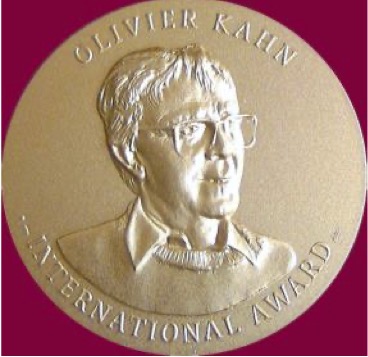
|
Entries are now being accepted for the ninth “Olivier Kahn International Award”.
The award will be given to a young talented scientist working in Europe in the
field of Molecular Magnetism or closely related disciplines.
Further details can be found here. |
ECMM, Krakow, 2024 (2024/01/17)
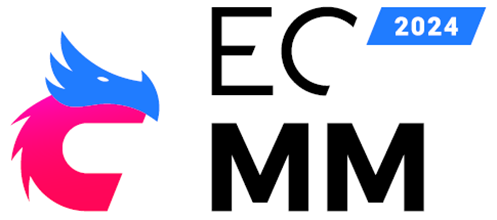
|
We are pleased to announce that the 9th European Conference on
Molecular Magnetism (ECMM) will be held in Kraków (Poland) from
July 15 (Monday), 2024 to July 19 (Friday), 2024.
Registration is now open! You will find more information about the registration on the website: https://ecmm2024.confer.uj.edu.pl. The program of ECMM2024 will include plenary lectures broadening the scope of interest for the European molecular magnetism community, as well as invited lectures focusing on selected hot topics in the field. We will have the pleasure to welcome three Plenary Speakers: Jonathan Nitschke (University of Cambridge), David Écija (Instituto Madrileño de Estudios Avanzados en Nanociencia), and Sandrine Heutz (Imperial College London), as well as 24 Invited Speakers. The main ECMM2024 conference will be preceded by a Young ECMM2024 (yECMM) pre-conference which will be organized from July 14 (Sunday), 2024 to July 15 (Monday), 2024 in Kraków, in the same conference venue as the subsequent main event. You can read more about the above event, addressed especially to young scientists (PhD students and post-docs), on the subpage: https://ecmm2024.confer.uj.edu.pl/yecmm/Information. You will find more information about the conference, the venue and the registration on the website: https://ecmm2024.confer.uj.edu.pl and live info via the X (Twitter) account (https://twitter.com/ecmm2024). We hope to see you in Kraków in summer 2024! Co-chairs of ECMM2024 Dawid Pinkowicz, Szymon Chorazy, Robert Podgajny |
Two PostDoc positions in Light-induced EPR and Light-induced EPR for Quantum Information Processing at the University of Manchester (2024/01/17)
The Electron Paramagnetic Resonance (EPR) and Molecular Magnets group at the University of Manchester are seeking two highly motivated Postdoctoral Scholars to carry out collaborative research in Light-induced EPR, quantum information processing and molecular magnets. Further details can be found here:https://www.jobs.manchester.ac.uk/Job/JobDetail?JobId=27358
and
https://www.jobs.manchester.ac.uk/Job/JobDetail?JobId=27787
The closing date for applications for the two positions are 26th Jan 2024 and 31st Jan 2024. Interested candidates are encouraged to contact alice.bowen@manchester.ac.uk for informal discussions prior to application.
The main responsibilities will be conducting and developing EPR experiments on optically activated systems to characterize the systems with the aim of applying novel quantum gate algorithms. Other responsibilities include guiding and advising graduate and undergraduate student researchers and writing scholarly papers. The successful candidates will have access to a training budget to support them to develop their own research ideas. Candidates should have, or be about to complete, a Ph.D. in Chemistry, Physics, Natural Science or related fields and experience of working with magnetic resonance, ideally EPR, and/or laser spectroscopies.
PostDoc for Quantum Dynamics of Spin-Based Molecular Systems (2023/11/23)
The Department of Physics at the University of Nevada, Reno is seeking to hire a highly motivated Postdoctoral Scholar to carry out collaborative research in molecular magnets as part of the "Quantum Dynamics of Spin-Based Molecular Systems" project funded by the US Department of Energy. The main responsibilities will be conducting theoretical modeling of multi-spin molecular magnets, including spin-spin interactions, spin dynamics, and spin-vibrational interactions for quantum information science applications. This research will be performed in the group of Yafis Barlas and in collaboration with a team of computational and experimental chemists. Other responsibilities include guiding and advising graduate and undergraduate student researchers and writing scholarly papers.Required Qualifications: Ph.D. in Physics, Physical Chemistry, or related fields, Completion of a doctoral degree in the appropriate discipline is required, The doctoral degree must have been completed within the five years immediately preceding the first date of appointment as a postdoctoral fellow at the University, The individual cannot have held previous positions in the professional ranks. For details please visit the webpage
X-ray spectroscopy of magnetic materials: emerging opportunities at the 4th generation synchrotron (2023/10/04)
The Workshop will be held at the European Synchrotron Radiation Facility in Grenoble, France, from December 11 - 13, 2023. This two-and-half-day workshop, which will bring together the experts within the field, will allow for a comprehensive view of the latest achievements and envisioned developments in absorption and emission X-ray spectroscopic techniques applied to magnetic materials. During the meeting we will seek to highlight the emerging new opportunities for magnetism research offered by the ESRF-EBS as well as upcoming upgrades at other synchrotron radiation facilities. This workshop is intended to create a friendly environment aiming to attract new users and to establish new collaborations. It will consist of mainly invited talks with ample time reserved for questions and discussion as well as a poster session. For early stage researchers and non-expert users, a tutorial session on the use of X-ray sum rules and advanced simulations of X-ray spectra will be organized. The workshop is open to all interested researchers, but the number of participants will be limited to approximately 60. There is no registration fee and meals and accommodation during the workshop will be provided free of charge. A limited number of bursaries are available for PhD students and early stage researchers working in the field. Deadline for registration for the workshop is on Friday 10th November. This is an in-person workshop and it is funded by EU project Streamline and the ESRF. You will find more information about this event on the web page: https://www.esrf.fr/home/events/conferences/2023/xsmm2023.html Submission of a poster is welcome and we kindly ask you to send by email (xsmm2023@esrf.fr) the title of your poster as well as the name and affiliation of the presenting author at your earliest convenience. On behalf of the Organising Committee Andrei RogalevMultiple Tenured/Tenure-Track 9 Month Salaried Faculty Positions in Quantum Science and Engineering (2023/09/22)
The College of Arts and Sciences at FSU and the joint College of Engineering at Florida A&M University (FAMU) and FSU are inviting applications for multiple, open-rank, tenure-track or tenured positions in quantum science and engineering. Successful applicants will be appointed to a mutually agreed upon department, with joint appointments between departments and colleges being possible. In principle, interested applicants can find details of the ad at our quantum website: https://quantum.fsu.edu/, although it has not posted there yet, but should do very soon. In addition, a "physics only” faculty search has been approved. When that ad is approved, it will be posted here, too. Questions regarding the position should be directed to Stephen Hill (shill@magnet.fsu.edu). See job announcement.Two PhD Positions: Molecular Spin Qubits probed by Metasurfaces at High Frequency EPR (2023/09/20)
I am looking for motivated individuals to work with me on development and exploit of metasurface resonators to investigate thin films of molecular spin qubits using High Frequency Electron Paramagnetic Resonance Spectroscopy. More details in the announcement. The application can be sent by email directly to Lorenzo Tesi (lorenzo.tesi@ipc.uni-stuttgart.de). See job announcement.Multiple Postdoctoral Positions for the FSU Quantum Initiative (2023/09/18)
Florida State University seeks multiple postdoctoral fellows to join the FSU Quantum Initiative. I would be most grateful if you could pass on the link in this email to any potential applicants, as well as to colleagues who may know of outstanding candidates. This is an open call in multiple areas of quantum science and engineering. Of course, I would be particularly interested in applicants who would be interested in working with me on EPR studies of molecular spin qubits. Questions regarding the position should be directed to Stephen Hill (shill@magnet.fsu.edu). See job announcement.Virtual seminars on molecular magnetism (2023/05/24)
The research group of Alessandro Lunghi at Trinity College Dublin is organizing a series of virtual seminars on molecular magnetism and related areas and would like to invite all interested people to join the speakers through zoom.
The confirmed speakers are
11/05/23 - Elizaveta Suturina - University of Bath - "Computational aspects of paramagnetic NMR analysis in open-shell metal complexes"
18/05/23 - Matteo Briganti - "Metallocene spin Qubits disclosed by theory from the crystal to the adsorbed phase"
25/05/23 - Roberta Poloni - tba
08/06/23 - Jacob Staab - tba
15/06/23 - Bess Vlaisavljecich - tba
22/06/23 - Maristella Alessio - "Quantum Chemical Design of Molecular Magnets"
Alessandro is looking forward to discussing with you the exciting results of our colleagues in the field of molecular magnetism and beyond. If you wish to participate please send him an email to obtain the zoom link.
Two Postdoctoral Positions: Development and Application of Advanced High-Field EPR (2023/01/19)
See job announcement.Questions regarding the position should be directed to Stephen Hill (shill@magnet.fsu.edu). To apply, please send a CV, a cover letter describing your experience and research interests, and the contact information for three references.
M2QM EMR Postdoc Position (2022/09/27)
Postdoctoral Position at National High Magnetic Field Laboratory and DOE Center for Molecular Magnetic Quantum MaterialsSupervisor: Stephen Hill, Director of MagLab EMR Program
Application deadline: Until the position is filled by suitable candidate
Start date: Some flexibility, but sooner is better
A postdoctoral position is available in the Electron Magnetic Resonance (EMR) group at the National High Magnetic Field Laboratory (MagLab), funded through the Center for Molecular Magnetic Quantum Materials (M2QM).
The project involves fundamental spectroscopic investigations of
molecular materials developed within M2QM, and via a worldwide
network of collaborators, employing state-of-the-art
instrumentation available at the MagLab for both continuous-wave
and pulsed EPR at high magnetic fields. Additional stimuli such
as light-irradiation and high-pressures will also be available
to further modulate the quantum properties of the molecules
under study. Areas of interest within M2QM that are under active
investigation at the MagLab include: understanding decoherence
processes and the development of strategies for enhancing
coherence in molecular spin qubits; demonstration of multi-qubit
entanglement and quantum logic operations in magnetic molecules;
exploitation of magnetoelectric coupling and optical activity
for realization of electrically and optically switchable spin
qubits; and studies of substrate interactions in molecular films
and devices.
The successful applicant should have a PhD in either physics,
physical chemistry or a closely related discipline. Expertise in
EPR spectroscopy is certainly an advantage. However, strong
consideration will also be given to applicants with experience
in the application of other spectroscopic or magnetic
characterization methods to molecular materials.
Questions regarding the position should be directed to Professor
Stephen Hill. To apply, please send a CV, a cover letter
describing your experience and research interests, and the
contact information for three references, preferably by email to
shill@magnet.fsu.edu.
https://nationalmaglab.org/careers/job-opportunities/m2qm-emr-postdoc-position
2022 RSC/SCF Lectureship in Chemical Sciences (2022/06/10)
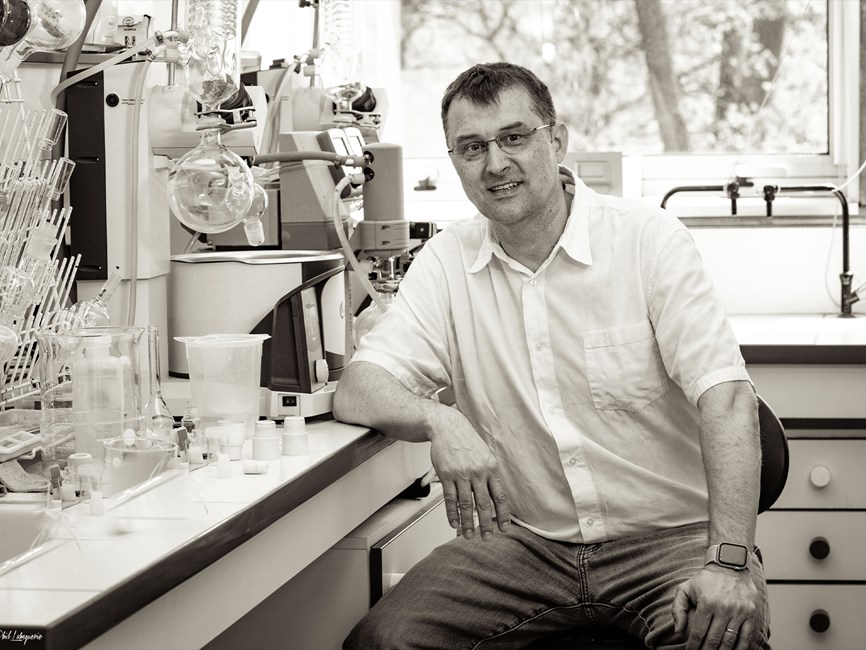
|
Professor Rodolphe Clérac is the winner of the
2022 RSC/SCF Lectureship in Chemical Sciences
(CNRS - Université de Bordeaux):
For the development of new research areas in molecular magnetism
and contributions to the study of magnetic materials.
Read more here. |
Nonequilibrium Quantum Magnetism by Magnetophononic Driving (2022/06/24)
Supervisor: Dr. Bruce NormandLocation: Paul Scherrer Institute, Villigen, Switzerland
PhD Degree from: Ecole Polytechnique Fédérale Lausanne, Switzerland
Start Date: 01.08.22 -- 01.01.23
Duration: 4 years
Nature of project: pumping lattice phonons provides a bridge between ultrafast
light fields and quantum magnetic degrees of freedom. The project is purely
theoretical, aiming at quantitative calculations to accompany experiments
ongoing and planned at the PSI laser facilities. Thus it will involve (i) a
significant numerical component (coupled equations of motion, lattice dynamics,
density-functional or quantum-chemical estimates of magnetic interactions,
methods for many-body quantum spin systems), (ii) an optional analytical
component (up to 50%, exploring phenomenology for different types of quantum
magnetism and different types of damping bath) and (iii) direct contact with
experimental colleagues growing materials and performing ultrafast laser
measurements at PSI and elsewhere.
Applications containing CV, publications, motivation letter and contact details for two references may be submitted by e-mail to bruce.normand@psi.ch and should arrive by 24th June 2022.
Hannu Mutka (02/03/2022)
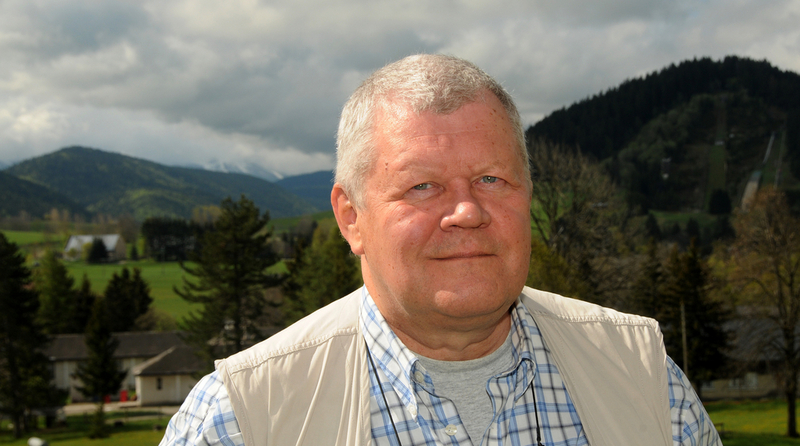
|
It is with great sadness that we learnt that Hannu Mutka passed
away on 25 February as a consequence of a earlier heart
attack. Hannu passed away very peacefully and without suffering,
surrounded by his close family.
Hannu was a brilliant scientist. During his time at the ILL, he published some 353 articles, which have since been cited about 8000 times. Among other things, he made major contributions mainly in magnetic excitations in complex systems, including molecular magnets.
Text taken from ILL web site. Please
klick for continuation.. |
Green hydrogen storage: 4 PhD Scholarships (2022/01/26)
Green hydrogen will become a pivotal vector to carry and store renewable energy in a future net-zero carbon New Zealand and world. These 4 PhD scholarships (please see the details below) are focussed on the development of green hydrogen storage materials, and range from metal extraction from New Zealand minerals, to production, characterisation and hydrogen uptake measurement by the resulting materials, theoretical modelling of the hydrogen uptake, and techno-economic analysis in the New Zealand context.Supervision and support for the projects (details on the following pages) will be provided by academic staff in New Zealand at the University of Otago, University of Canterbury, Victoria University of Wellington, University of Auckland and Unitec, led by Prof Sally Brooker (Otago), and by staff at the Institute of Hydrogen Technology, Helmholtz-Zentrum Hereon, in Germany, led by Dr Paul Jerabek (HZH). It is expected that most of the candidates will spend time at both the New Zealand and German host institutions over the course of their PhD studies. Māori and Pasifika students are particularly encouraged to apply. International students are also welcome to apply.
job announcement
PhD student (f/m/d) (M.Sc. in Physics or Chemistry) to study the magnetic anisotropy in gas phase single molecule magnets using XAS and XMCD in a cryogenic ion trap (2021/12/03)
We are investigating the electronic and magnetic properties of single molecule magnets, transition metal ions and transition metal centers in clusters, organometallic coordination entities, and chelate complexes that we either build up and investigate atom by atom or ligand by ligand or spray from a liquid into the gas phase. To this end, we operate a unique cryogenic ion trap setup for gas-phase soft-x-ray absorption (XAS) and x-ray magnetic circular dichroism (XMCD) spectroscopy as well as a liquid-jet setup for resonant inelastic x-ray scattering (RIXS) at BESSY II, both of which are designed to study highly-dilute gas-phase and liquid-phase matter with highest sensitivity. We use these tools to arrive at a fundamental understanding of energy levels, spin states, oxidation states, and valence electron delocalization in coordination entities of 3d and 4f transition elements.We offer a PhD position to 'Investigate the magnetic anisotropy of gas phase single molecule magnets'.
Your main objective is to investigate the spin states of gas phase single molecule magnets as well as determining their blocking temperature - a measure for the transition from a superparamagnetic to a blocked spin state. This will allow to study the interplay of the intrinsic magnetic anisotropy and further processes influencing the spin relaxation. The species of interest are prepared from electrospray ionization, magnetron sputtering, and gas-phase ion chemistry. Mass-selected samples are probed in a cryogenic ion trap. You will work closely with a team of postdoctoral research associates and PhD students as well as in cooperation with renowned labs.
On-line job announcement
Myriam Sarachik (07/10/2021)
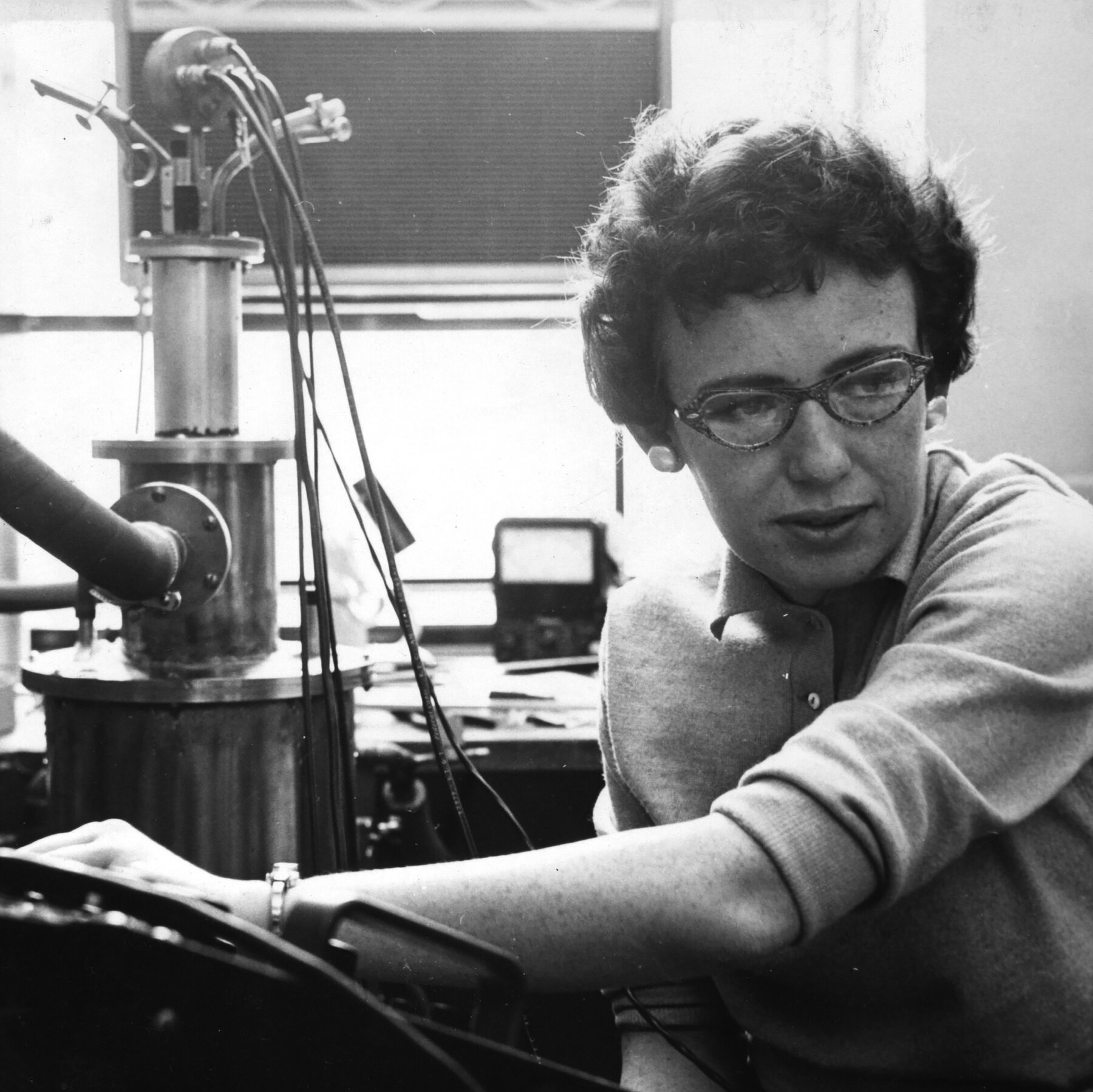
|
Our friend and internationally respected scientist Myriam
Sarachik, Distinguished Professor Emerita, at
City College of New York, passed away on October
7th 2021. Myriam was a mentor,
well-respected colleague and a role model for many within the
field of molecular magnetism and the wider physics
community. Myriam’s work helped shape the foundations of single
molecule magnetism research including the first experimental
observations quantum tunnelling of magnetisation and magnetic
deflagration in Mn12-ac. She served as President of the
American Physical Society in 2003, and worked tirelessly for the
human rights of scientists, including chairing the American
Physical Society International Committee on the Freedom of
Scientists and serving as a National Board member of the
Committee of Concerned Scientists. In 2020 she was awarded the
American Physical Society Medal for Exceptional Achievement in
Research for her "contributions to the physics of electronic
transport in solids and molecular magnetism”.
Michael L. Baker
There was a well attended service on
Sunday, 10 October 2021. |
Two lecturer positions at the University of Otago (2021/09/10)
Two permanent lecturer positions in the chemistry department at the University of Otago are advertized: one in the very broad field of organic chemistry and the other one in analytical chemistry:Lecturer in Organic Chemistry (2101749)
Lecturer in Analytical Chemistry (2101750)
Postdoc position in chemistry at University of Nevada-Reno (2021/07/22)
The Frank research group in the Department of Chemistry at the University of Nevada-Reno has an open one-year postdoc position starting from September 1, 2021 with possible extension for year 2.The project involves preparation and characterization of optically-gated spin qubits for quantum information science. We are looking for a postdoctoral associate with expertise in organic synthesis, coordination chemistry, magnetic measurements and EPR. The candidate should be in possession of PhD degree. The University requires that all postdoctoral fellows be within five (5) years of their PhD degree.
Applications can be sent as a single PDF file (nfrank@unr.edu) including the following documents: a cover letter stating your motivation for this position, a research summary of past accomplishments, CV (resumé), and the names and contact details of 2 referees.
EMR/DNP Research Faculty (2021/06/25)
Application Deadline: Open until filled.
The National High Magnetic Field Laboratory (National MagLab) is
searching for a Research Faculty to support user operations and
develop unique microwave instrumentation that will facilitate
new research capabilities in the area of high-field magnetic
resonance, particularly dynamic nuclear polarization (DNP) at
fields/frequencies up to 36 T / 970 GHz. The MagLab is an
NSF-funded user facility that operates the world's most powerful
electromagnets at Florida State University, the University of
Florida and Los Alamos National Lab, including 45 T DC and 35.2
T (1.5 GHz) NMR magnets, and DNP spectrometers currently
operating up to 14.1 T / 600 MHz / 395 GHz.
More information here.
Rodolphe Clérac received the 2021 Silver Medal from the CNRS (2021/06/16)
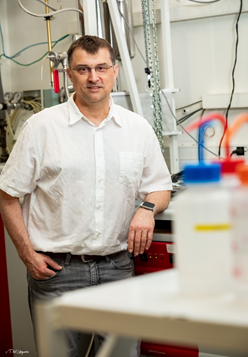
|
Rodolphe Clérac, Research Director at the Centre de Recherche
Paul and head of the "Molecular Materials & Magnetism" team,
received the 2021 Silver Medal from the CNRS.
Read more here. |
2021 Harrison-Meldola Memorial Prize awarded to Nicholas Chilton (2021/06/08)
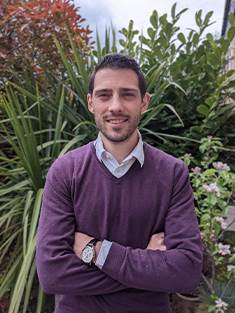
|
Nicholas Chilton received the 2021 Harrison-Meldola Memorial
Prize
for contributions in applying experimental and advanced
computational methods to understand the magnetic and electronic
properties of molecules.
Read more here. |
2021 Dalton Division Horizon Prize awarded to the Manchester Molecular Magnetism Group (2021/06/08)
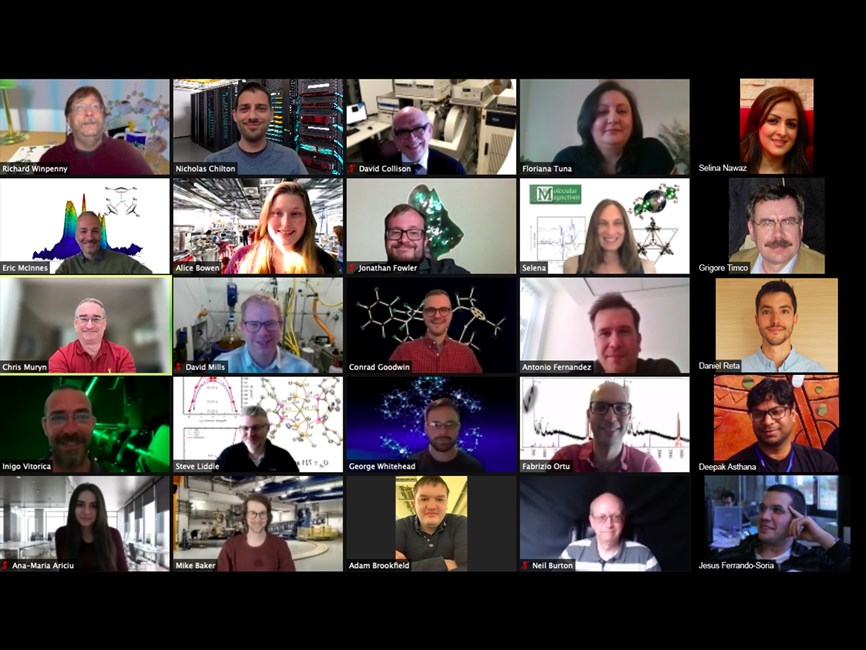
|
The Manchester Molecular Magnetism Group
received the 2021 Dalton Division Horizon Prize
for contributions to molecular magnetism, including high
temperature single molecule magnets, applications of EPR
spectroscopy to actinide chemistry and the use of heterometallic
rings as building blocks in supramolecular chemistry.
Read more here. |
Chemical Society of Japan Award for 2019 for Masahiro Yamashita (2021/02/19)
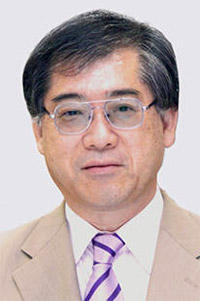
|
Prof. Masahiro Yamashita of Tohoku University received the
Chemical Society of Japan Award for 2019 for
"Nano-Science of Advanced Metal Complexes
Based on Nonlinearity and Quantum Effect"
Read more here. |
Post-Doc position (12 months, extension up to 3 years) at the IMCN institute of UCLouvain (2021/02/10)
The host group, belonging to a top university in Belgium, is active on the synthesis and investigation of new molecular (photo) magnetic materials. Successful candidates will be talented in coordination and organic chemistry, among other requirements which can be found in the detailed job description at ygarcia.homestead.comApplications are invited ASAP but no later than 19 March 2021 to Prof. Dr. Yann Garcia (yann.garcia@uclouvain.be)
Marshall Luban (2021/01/22)
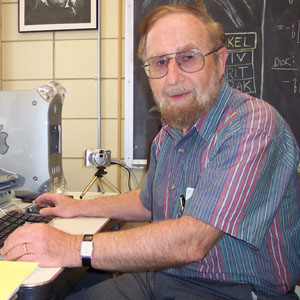
|
Our very good friend and internationally well-respected
colleague Marshall Luban passed away 9 January 2021. We will
miss him very much.
Marshall worked among other topics on molecular magnetism. His goal was to derive general physical properties of spin systems that result from e.g. archetypical geometries such as rings or Archimedean solids. He was deeply interested in understanding the physics of such systems, and paid little regard to current fashions in science. This approach continues to inspire us. Marshall was really gifted in bringing together people from chemistry, physics, and mathematics. He did this in his very polite and cautious way, with a quiet and kind sense of humour. Starting around 1998 he managed to create what Hiroyuki Nojiri once named “The worldwide Ames group“, a group of colleagues that turned into friends. Without his initiative, most of us would not have met and would not have become close friends. He has been a very good “chemist” to synthesize a network of scientists, and he created a new phase of research by mixing us in his flask. He kept strong relations with several places such as Manchester or Sendai, however, he visited Osnabrück very frequently, practically once a year in the early 2000s. He imprinted his scientific joy for molecular magnetism to a larger fraction of Osnabrück’s physics department – something that we (from Osnabrück) never regretted. The University of Osnabrück awarded an honorary Ph.D. to Marshall Luban in 2006: “In the context of a life-long scientific achievement, Marshall Luban has substantially promoted the field of molecular magnetism – both by his own work as well as by initiating international collaborations.” For some younger scientists – Larry Engelhardt, Nikolaos Konstantinidis, Ioannis Rousochatzakis, Jürgen Schnack, and Christian Schröder – he became a scientific father. All of us learnt from his example and we attempt to follow this example, putting people first with science a close second. Klaus Bärwinkel, Hiroyuki Nojiri, Heinz-Jürgen Schmidt, Christian Schröder, Jürgen Schnack, and Richard Winpenny |
PhD and Postdoc positions at Trinity College Dublin (2020/12/04)
Two PostDoc positions and one Ph.D. position are available in Stefano Sanvito's group at Trinity College Dublin.Canada Research Chair positions in Chemistry at the University of Ottawa
I would like to bring it to your attention two new positions (one senior CRC T1 and one junior CRC T2) at the Department of Chemistry and Biomolecular sciences at the University of Ottawa, Canada.
CRC T1: https://academiccareers.com/job/10550/tier-1-canada-research-chair-in-green-materials/
CRC T2: https://www.uottawa.ca/vice-president-academic/faculty-relations/faculty-recruitment/openings
These are prestigious Canada Research Chair positions, which come with an excellent level of funding and are used to recruit the top candidates in the field. All the information can be found in the links, including the application procedure.
Peter Day

Prof. Peter Day at a NOSIC meeting,
|
Professor Peter Day FRS was a pioneer in materials chemistry,
interested in the physical properties of new inorganic and
molecular compounds and in the best way to model and to explain
them theoretically. His work with Robin on mixed valence
systems, known as the "Robin and Day classification", starting
with Prussian blue "the grand-daddy of all mixed valence
compounds", is a remarkable scientific piece, still fully
operative among modern researchers. Peter was known to design
elegant sophisticated experiments and the theoretical models
useful to interpret them: optics, spectroscopy, magnetism,
(super)conductivity.
During 40 years of active research, Peter published around 700
articles, in collaboration with numerous groups in UK, the US,
Europe, India, Japan. Peter was elected fellow of the Royal
Society in 1986 and member of the Academia Europaea in 1992. He
has received awards from the Royal Society and the Royal Society
of Chemistry (RSC). The RSC award in materials chemistry bears
his name. Peter served many National, European and International
agencies and institutions.
Peter passed away on 19th May 2020. He will be sadly missed. |
ISIS User Stephen Blundell receives prestigious award for muon science

|
The Yamazaki Prize is awarded once every three years by the
International Society for Muon Spectroscopy, recognising a
scientist for their outstanding work in muon spectroscopy with a
long-term impact on its scientific and/or technical
applications.
Read more here. |
PhD studentship jointly held between The University of Manchester (U.K.), The Centre de Recherche Paul Pascal, Bordeaux (Fr.) & Institut Laue-Langevin, Grenoble (Fr.)
Project details can be found here.Magnetochemistry Special Issue "Magnetic Properties at Extreme Conditions"
Dear Colleagues, Extreme conditions research bridges coordination chemistry, solid state chemistry, structure, magnetism, and spectroscopy and can be used to unravel new physical behavior in superconductivity, charge transport, and magnetism. Pressure can be applied to a range of molecular magnetic materials, including single-molecule magnets, spin crossover complexes, spin chains, and magnetic frameworks. Here, applied pressure provides a direct probe for investigating magnetostructural correlations, avoiding the need to examine numerous different chemical derivatives of a given material. It is rapidly becoming a convenient tool to study molecular magnetic materials, where it has been used to increase magnetic ordering temperatures, change the orientation of Jahn–Teller axes, and control magnetic anisotropy.This Special Issue of Magnetochemistry aims at publishing a collection of research contributions illustrating recent achievements in all aspects of the development, study, and understanding of magnetic properties at extreme conditions.
Prof. Mark Murrie, Guest Editor Details can be found here.
Post-doctoral researcher scholarship(s) in Theoretical Physics (Condensed Matter Theory, Kaiserslautern)
Project details can be found here.PhD position available at the University of Tasmania, Australia
Synthesis of dinuclear radical bridge clusters
In the absence of a magnetic field, certain molecules can retain
magnetisation; they exhibit a hysteresis (or a lagging) in
the magnetisation below a certain temperature. The term
Single Molecular Magnet (SMM) has been coined to describe
such molecules. The origin of the magnetic hysteresis is
not from long range magnetic ordering as seen in classical
magnetic materials, rather is intrinsic to the molecular
features of the molecules. The best lanthanide SMMs are
usually based on monometallic complexes. However, radical
bridges have been used to provide a very strong
interaction between the unpaired electrons in the
contracted 4f orbitals in dinuclear lanthanide
complexes. This project involves the synthesis of new
dinuclear complexes involving the verdazyl ligand.
Project details can be found at: https://secure.utas.edu.au/research/degrees/available-phd-projects/phd-projects/college-of-sciences-and-engineering/school-of-natural-sciences/chemistry/synthesis-of-dinuclear-radical-bridge-clusters/_nocache
For more information: https://www.utas.edu.au/profiles/staff/chemistry/rebecca-fuller
email: rebecca.fuller@utas.edu.au
Postdoctoral Fellow in Theory of Quantum Matter, Stockholm
Closing date: 13 December 2019. The Department of Physics is one of the biggest departments within the Faculty of Science and supports a broad range of basic research in experimental and theoretical physics. It has about 250 employees of which 95 are PhD students. Many have been internationally recruited. The Department is part of the AlbaNova University Center, which apart from the Department of Physics houses the Department of Astronomy, the Physics Departments at the Royal Institute of Technology (KTH), and the Nordic Institute for Theoretical Physics (Nordita). Project description The research group "Theory of Quantum Matter" in the unit for Condensed Matter and Quantum Optics, within the Department of Physics at Stockholm University, invites applications to two postdoctoral positions within the area of threedimensional topological phases. The research group consists of eight active permanent members, eight postdocs and about eleven Ph.D. students. The research focuses on various forms of quantum matter, in the context of solid state systems, as well as artificial ones, such as those that are formed in ultra cold gasses, and certain states in quantum-optics. The used methods range from numerical and symbolic computations to quantum field theory calculations utilizing advanced concepts from geometry and topology. The postdoctoral fellow will work as part of the research group lead by Maria Hermanns where main research interests include topologically ordered states, in particular quantum spin liquids, and entanglement signatures of topological phases of matter. Main responsibilities The successful candidate will study various strongly correlated systems and/or topological phases using analytical and/or numerical techniques. He/she is expected to be able to do independent work, work in collaboration with other group members and participate in the supervision of Ph.D. students. Qualification requirements Postdoctoral positions are appointed primarily for purposes of research. Applicants are expected to hold a Swedish doctoral degree or an equivalent degree from another country. Assessment criteria In the appointment process, special attention will be given to research skills within the research topic of strongly correlated phases and topological phases of matter, as well as the ability to conduct independent research. Previous research experience in analytical and/or numerical techniques that are especially suited for strongly correlated systems is favorable. The degree should have been completed no more than three years before the deadline for applications. An older degree may be acceptable under special circumstances, which may involve sick leave, parental leave, clinical attachment, elected positions in trade unions, or similar. Terms of employment The position involves full-time employment for a maximum of two years, with the possibility of extension for another year. Start date 2020-09-01 or as per agreement. Stockholm University strives to be a workplace free from discrimination and with equal opportunities for all. Contact Further information about the position can be obtained from Maria Hermanns, maria.hermanns@fysik.su.se. Union representatives Ingrid Lander (Saco-S), telephone: +46 708 16 26 64, saco@saco.su.se, Alejandra Pizarro Carrasco, telephone: +46 8 16 34 89, alejandra@st.su.se, and seko@seko.su.se (SEKO). Application Apply for the position at Stockholm University's recruitment system. It is the responsibility of the applicant to ensure that the application is complete in accordance with the instructions in the job advertisement, and that it is submitted before the deadline. Please include the following information with your application: Your contact details and personal data Your highest degree Your language skills Contact details for 2-3 references Important: Your academic referees should send us recommendation letters via email to: FV-3626-19.refletters@fysik.su.se and state in the subject line: SU FV-3626-19 + name of the applicant.Prof. George Christou awarded the American Chemical Society 2019 ACS Award in Inorganic Chemistry
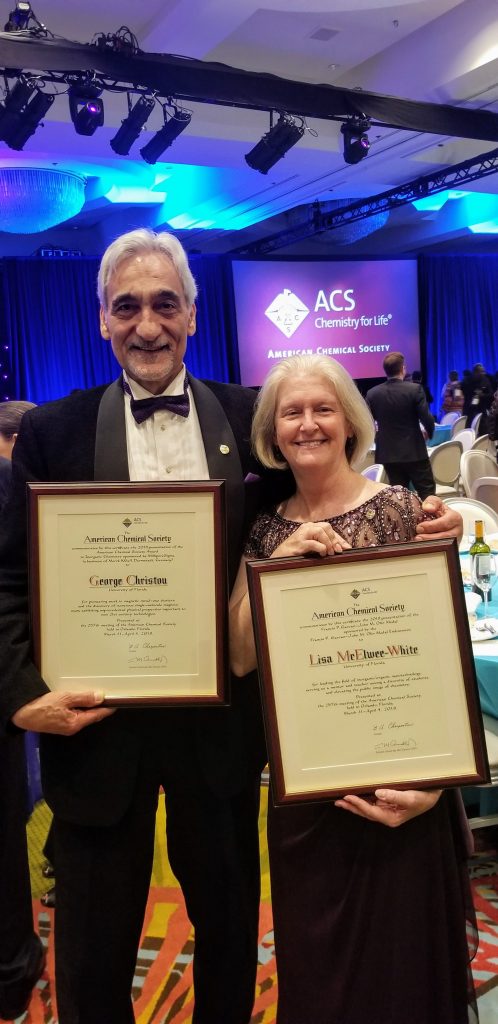
|
Professor George Christou has been selected to receive the 2019 Award in Inorganic Chemistry from the American Chemical Society "for his pioneering work in magnetic metal-oxo clusters and discovery of numerous single-molecule magnets, many exhibiting unprecedented physical properties important to new 21st century technologies". He received the prize at the 2019 ACS national meeting in Orlando, Florida, on March 31 - April 4, during which there was also a one-day award symposium in his honor. The ACS Award in Inorganic Chemistry is given every year to recognize "... outstanding research in the preparation, properties, reactions, or structure of inorganic substances. Special consideration (is) given to independence of thought and originality." |
Postdoc in single molecule magnetism, Aarhus, Denmark
Applications are invited for a postdoc position at the Department of Chemistry, Aarhus University, Denmark (www.chem.au.dk). Duration is up to 2 years. The place of work is Langelandsgade 140, 8000 Aarhus C, Denmark. The position is embedded within a new Villum-supported project entitled "Magnetic Anisotropy Using Powder Neutron Diffraction", which focuses on experimental determination of magnetic anisotropy using powder polarized neutron diffraction. We are seeking a candidate to continue the development of the emerging application of polarized neutron diffraction on powders for the extraction of atomic susceptibility tensors. The candidate is required to possess a strong background in molecular magnetism and to have experience with neutron and x-ray diffraction, both powder and single crystal. The methodology is currently under development, and solid knowledge of the python programming language is therefore necessary. It is considered advantageous if the candidate has experience with synthesis, and a solid theoretical understanding of magnetism allowing a strong participation in the theoretical aspect of the project. The successful candidate will also be involved in electron density determination using synchrotron X-ray diffraction in collaboration with other members of the group, and prior knowledge of these techniques will be considered positively, but are not required. The candidate must possess a PhD in chemistry or physics, preferably with emphasis on molecular magnetism. The intended starting date for this position is January 1st 2020 or as soon as possible thereafter.ACMM Rising Star Award

|
ACMM offers a "Rising Star Award" at ACMM2020. This award was established by great contribution of Prof. Masahiro Yamashita and Prof. Hiroki Oshio.
One winner will be selected and will receive a certificate and a
prize of 100,000 JPY, and the winner has an award lecture at the
opening ceremony on 9th March. Eligibility: Researchers who are 38 years old or younger (when applying) with PhD Application Guideline: Details are given in the file: Application Guideline |
ADocMolMag (VI edition): A EUROPEAN AWARD FOR A DOCTORAL THESIS ON MOLECULAR MAGNETISM
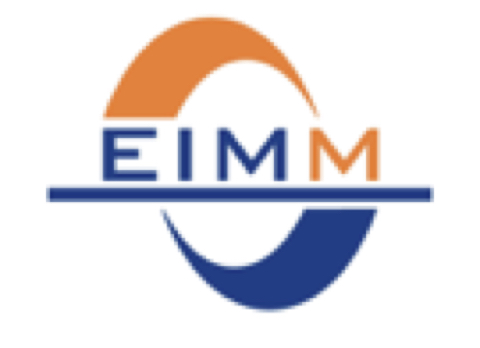
|
Entries are now being accepted for the sixth "European Award on
Molecular Magnetism Doctoral Thesis". The award will be given to
three young talented researchers in the field of Molecular
Magnetism or a closely related discipline. The jury will pay
particular attention to the design f novel magnetic molecules
and materials, discovery of new phenomena, the application of
new technologies or techniques, and important steps that advance
our understanding of molecular magnetism. The jury will be
composed of four internationally renowned scientists working
within the field. The prize will include 500 Euro plus the registration fee towards attendance at an international event such as the European Conference of Molecular Magnetism 2021, or the Spintronic conference 2020, or at the ESMolNa school 2020, or others, where the successful candidates will also have the opportunity to present their work. Eligibility. Candidates are eligible who submitted a PhD thesis between 1st April 2016 to 31th March 2018. Application. The application should contain: 1) A three-page summary of the thesis, underlining the major achievements of the thesis work. 2) A list of the publications obtained from the thesis, including publications that have appeared since the thesis was submitted. 3) A two-page CV containing also contact details for the applicant. 4) Up to three recommendation letters from the supervisors of the thesis or other scientists involved in the thesis work. 5) The electronic version of the thesis and related publications in pdf format, as like as the above material, should be sent via We transfer (https://www.wetransfer.com) to: adocmolmag@instm.it Application can be received up to December 15th, 2019 For further information: andrea.caneschi@unifi.it |
2020 APS Medal for Exceptional Achievement in Research
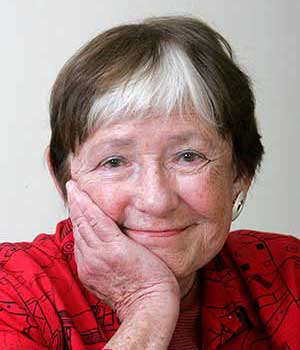
|
Myriam Sarachik, Distinguished Professor Emerita, at
City College of New York, has been awarded the 2020
APS Medal for Exceptional Achievement in Research.
The medal recognizes contributions of the highest level that advance our knowledge and understanding of the physical universe in all its facets, and is presented along with a $50,000 prize. The 2020 APS Medal is presented to Sarachik "for fundamental contributions to the physics of electronic transport in solids and molecular magnetism." Source: APS web page. |
RCS 2019 Tilden Prize
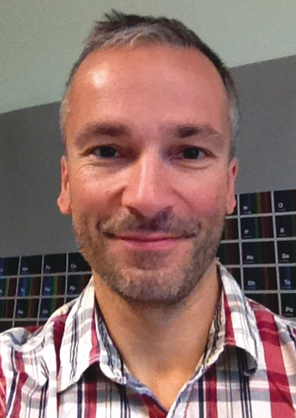
|
The Royal Society of Chemistry awarded the 2019
Tilden Prize
to Eric McInnes, The University of Manchester,
for seminal contributions to the electron
paramagnetic spectroscopy of transition metal compounds.
Source: Web page of The Royal Society of Chemistry. |
RCS 2019 Centenary Prize
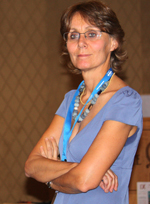
|
The Royal Society of Chemistry awarded the 2019
Centenary Prize to Roberta Sessoli, Universita degli
Studi di Firenze, for world-leading research on molecular
magnetism, single chain magnets and sustained memory
effects in molecular systems.
Source: Web page of The Royal Society of Chemistry. |
Bruker Prize Lecture 2020

|
David Collison,
co-founder and director of the
EPSRC UK National EPR
Facility, the University of Manchester,
was awarded the 2020 Bruker Prize by
the ESR Spectroscopy Group
of the Royal Society
of Chemistry
(07/2019).
The nominations emphasised David's seminal contributions to
experimental and theoretical
fundamentals of transition metal
EPR, from bioinorganic chemistry to
molecular materials, including his
authoritative textbook. Crucially,
they also stressed his important and
selfless work in developing,
supporting and nurturing the EPR
community throughout his career.
More information. |
Olivier Kahn International Award 2019

|
Nicholas Chilton, Research Fellow at the
Department of Chemistry of Manchester University,
United Kingdom won the Olivier Kahn
International Award (07/2019). More information. |
Leibniz Prize for Wolfgang Wernsdorfer

|
Wolfgang Wernsdorfer receives Germany's highest
science prize in 2019.
News coverage: Tagesschau 3sat nano SWR Aktuell Radio, Impuls online article online article online article |
Olivier Kahn International Award 2017
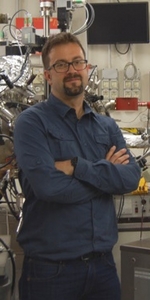
|
The European Institute
of Molecular Magnetism,
the President and
the members of the Olivier Kahn Award International Jury are
pleased to announce that the laureate of the sixth Olivier Kahn
International Award is Dr. Matteo Mannini, Assistant Professor,
Department of Chemistry, University of Florence, Italy.
The 2017 laureate, Dr. Matteo Mannini, has made original contributions in the field of the integration of magnetic molecules in nanometric architectures towards molecular spintronics. The laureate spent his young career in the Laboratory for Molecular Magnetism (LAMM), in the Chemistry Department of the University of Florence, with frequent stays in several European Synchrotron Radiation facilities. In his studies the laureate has been interested in some fundamental aspect of the magnetic memory of molecules. Importantly his results can serve as proof of principle that single molecules magnets (SMM), can be observed, not only in the bulk of a material but also when they are grafted or deposited on metallic substrates. This paves the way to more applicative research through the development of hybrid devices for organic spintronics. The shift from the crystal to the surface has been a recent evolution in molecular magnetism. It was necessary to address individual molecules and to fully exploit the molecular origin of the hysteresis of SMMs. It is far from being trivial. The overall study was successful because of a rigorous and multidisciplinary approach established in large part by Dr. Mannini. Dr. Mannini has played a crucial role acting as a very efficient link between chemists and physicists active in surface science and synchrotron radiation techniques. The area of phenomena and classes of materials that he has investigated with synchrotron light is particularly wide as it goes from spin crossover to valence tautomerism and from single molecule magnets to single chain magnets. In most cases he developed strategies for surface deposition and for monitoring the bistable behaviour. Far from single-shot studies, the laureate has developed reliable preparation and characterization protocols to provide new and reproducible results, a mandatory aspect for making real advances in this difficult research area. Supported by the members of the well-established and very active molecular magnetism laboratory in Florence, the best specialists in X-ray absorption and many fruitful collaborations, Matteo Mannini was able to choose the appropriate samples and techniques, to develop his own creativity to finally tackle the challenges of the “crystal to surface” shift. So doing, he became a reference in the field of molecular magnetic materials at the nanoscale. |
Wolfgang goes Karlsruhe
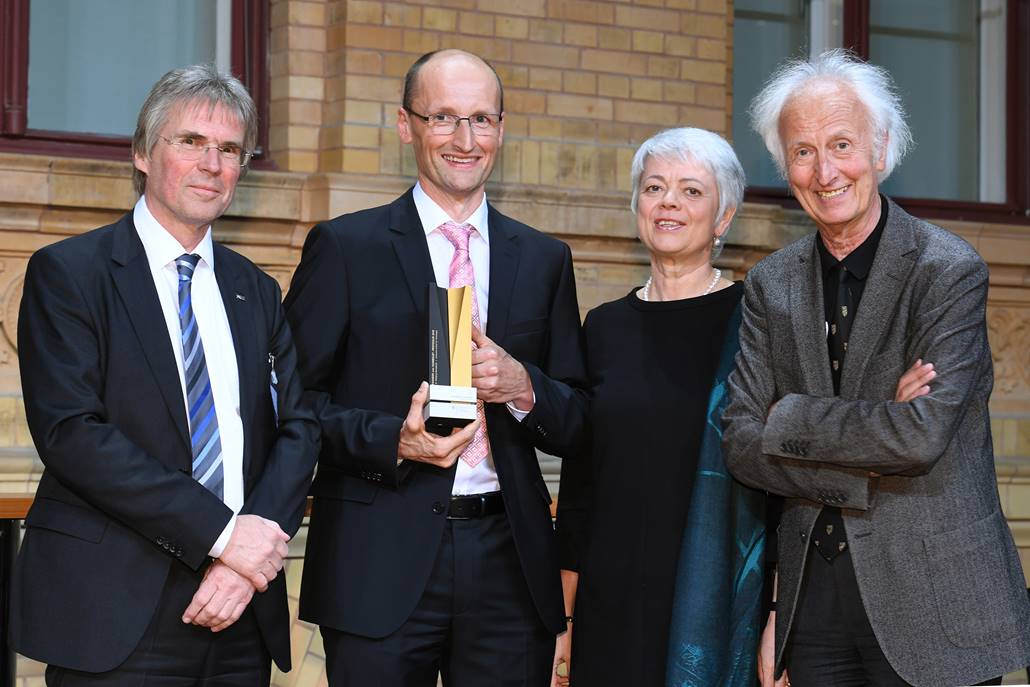
|
Celebrations of the Alexander von Humboldt Foundation.
|
CNRS Silver Medal 2016 for Wolfgang Wernsdorfer
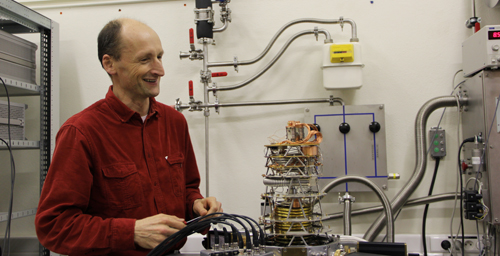
|
Wolfgang Wernsdorfer received the CNRS Silver Medal 2016.
|
Alexander von Humboldt professorship for Wolfgang Wernsdorfer

|
Wolfgang Wernsdorfer wins one of the prestigious Alexander von
Humboldt awards this year,
see web page of the Alexander von Humboldt
Foundation. The award amount is 3.5 million EUR for
researchers in theoretical disciplines and 5 million EUR for
those conducting experimental research. It finances the
professorship for the first five years.
The foundation writes: "Wolfgang Wernsdorfer's specialism is experimental solid state physics at the interface with chemistry and material science. He is one of the world's leading experts on nanomagnets and their use in quantum spintronics. Already as a doctoral researcher at the Low Temperature Laboratory in Grenoble, he developed the nano-SQUID, a breakthrough device allowing him to measure the magnetic properties of single nanostructures and molecules. Wernsdorfer discovered the role played by quantum laws in molecular magnetism and was thus able to build electronic circuits in which the electric current is controlled by the magnetism in the molecule. One of his most recent ambitions is to integrate tiny, molecular quantum processors in the state-of-the-art CMOS technology used in microelectronics. This could lead to nanomagnets being used in future quantum computers." |
Olivier Kahn International Award 2015
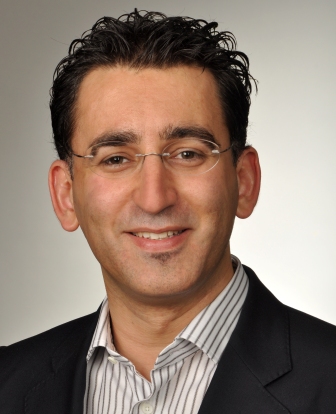
|
The European Institute
of Molecular Magnetism,
the chairman and
the members of the Olivier Kahn Award International Jury are
pleased to announce that the laureate of the fifth Olivier Kahn
International Award is Dr. Lapo Bogani, Royal Society Research
Fellow at the Departement of Materials of Oxford University,
United Kingdom.
The 2015 laureate, Dr. Lapo Bogani, has made original contributions in the field of single molecule and chain magnets and molecular spintronics. The laureate is now working in the Department of Materials of the University of Oxford, after scientific stays at the University of Florence, Institut Neel, CNRS in Grenoble and University of Stuttgart. The jury was impressed by the capacity of the laureate of catching quickly the essential features and combining his experience with that of the groups with which he has been collaborating and then of blending chemistry and physical intuition together in order to integrate the field of molecular spins within a more global and original scientific vision. The jury underlines the great inventiveness of the laureate in spotting new phenomena and his ability of finding the best way to study them. Particularly, Dr Lapo Bogani conceived, synthesized, processed and studied successfully new magnetic one-dimensional molecular anisotropic systems and their dynamics. The jury appreciated the extremely versatility and multidisciplinarity of the candidate, his work encompassing synthesis and physical characterizations, photomagnetism, magnet-optics, ultrafast methods on many kinds of different materials : molecular inorganic nanosystems including lanthanides, carbon nanotubes, graphene... So doing, he has performed brilliant research in Molecular Magnetism and was skilful to raise impressive amounts of money in an european context to reach his scientific goals. His achievements and visions were recognized by the scientific community, in particular in the field of molecular electronics and spintronics, specially in a groundbreaking article coauthored with the laureate of the first Olivier Kahn Award. The international jury delivering the Award selected the laureate among several young outstanding scientists - chemists and physicists - having contributed actively to the development of molecular magnetism in Europe and having provided the international community with remarkable scientific results. The members of the jury were extremely impressed by the very high standard of the candidates. They wish to the laureate and to all the candidates, full success in the development of their remarkable but challenging projects. The Award will be presented on the occasion of the European Conference on Molecular Magnetism, ECMM 2015, to be held in Zaragoza, Spain on September 6-10. The laureate will present an invited lecture on this occasion.
The European Institute of Molecular Magnetism (EIMM)
|
Jeffrey Long Wins Inorganic Chemistry Lectureship Award
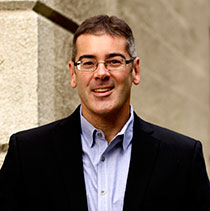
|
The ACS Division of Inorganic Chemistry and Inorganic Chemistry
are proud to announce Jeffrey Long, University of California,
Berkeley, as the winner of the second Inorganic Chemistry
Lectureship Award. Dr. Long was nominated by his peers for his
creativity, impactful research and record of accomplishments in
the field of inorganic chemistry. He will be presented with an
award at a symposium in his honor at the fall ACS National
Meeting, August 10-14, 2014 in San Francisco, CA. Dr. Long's
research interests focus on the development of new
single-molecule magnets, porous coordination solids and
metal-organic frameworks for myriad applications, as well as
robust proton reduction catalysts. His work has been recognized
with numerous awards including the Camille Dreyfus
Teacher-Scholar Award, the Wilson Prize, the TR100 Award, the
Phi Lambda Upsilon National Fresenius Award, and the National
Science Foundation Special Creativity Award.
ACS web page |
Molecular Magnetism at the annual meeting of the German Physical Society
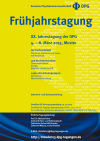
|
At this years annual meeting of the German Physical Society
three sessions deal with topics of molecular
magnetism. The condensed matter section meets in Dresden
March, 30 - April, 4 this year. Copies of these sessions
can be downloaded here: Symposium on Magnetic/Organic Interfaces and Molecular Magnetism (SYMO) , Focus Session: New trends in Molecular Magnetism , Session on Bio- and Molecular Magnetism |
Alan Sargeson Lectureship for Colette Boskovic
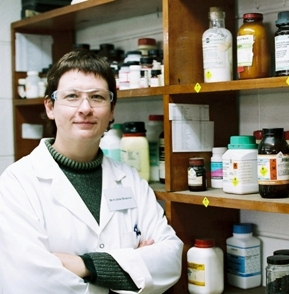
|
Congratulations to Dr. Colette Boskovic on her receipt of the Alan Sargeson Award from the Inorganic Chemistry Division of the Royal Australian Chemical Institute. This prestigious early-mid career researcher award acknowledges significant and innovative individual contributions to the field of inorganic chemistry. The award takes the form of a lecture tour of Australia and New Zealand, which Colette will undertake in 2014. |
ERC Starting Grant for Dr. Lapo Bogani

|
Dr. Lapo Bogani, Stuttgart, is receiving a "Starting Grant" from the European Research Council (ERC). |
Olivier Kahn International Award 2013

|
The European Institute of Molecular Magnetism, the chairman and the members of the Olivier Kahn Award International Jury are pleased to announce that the laureate of the fourth Olivier Kahn International Award is Dr. Marta Mas-Torrent of the Materials Science Institute of Barcelona (Consejo Superior de Investigaciones Científicas), Spain. The 2013 laureate, Dr. Marta Mas-Torrent, has made original contributions in the field of materials science and multifunctional materials. The laureate is working in the very active Department of Molecular Nanoscience and Organic Materials in Barcelona where she developed her own ideas at the interface between chemistry, physics, materials and applied science, from fundamental research to patents, towards technological applications. She successfully transformed organic molecules in readable switchable devices towards use as bits in information storage. The impressive, steady and creative endeavours of the laureate have exploited the fact that molecules can be synthesised in large amounts, tailored for specific applications and can spontaneously selfassemble in more complex structures to process them into original devices. Dr. Marta Mas-Torrent, researcher of NANOMOL, has already recently been awarded with an ERC Starting Grant by the project entitled Surface Self-assembled Molecular Electronic Devices: Logic Gates and Sensors Memories (e-GAMES). |
The OKIA award is going to be presented on the occasion of the European Conference on Molecular Magnetism, ECMM 2013, in Karlsruhe, Germany, October 6-10. The laureate presents an invited lecture on this occasion.
Source: Press release of EIMM.
Premio Linceo 2013 per la Chimica

|
Accademia Nazionale dei Lincei, the most important science
academy of Italy has awarded Roberta Sessoli of the
Università di Firenze and Consorzio INSTM node of the EIMM,
the prestigious Premio Linceo 2013 per la Chimica, a prize
assigned every 10 years.
Source: Press release of EIMM. |
Nicholas Kurti European Science Prize for Dr. Lapo Bogani

|
Dr. Lapo Bogani,
Stuttgart received this year's Nicholas Kurti European Science
Prize sponsored by Oxford Instruments NanoScience. The objective
of the Nicholas Kurti Prize is to promote and recognise the
novel work of young scientists working in the fields of Low
Temperatures and/or High Magnetic Fields in Europe.
Source: Oxford Instruments NanoScience web page. |
Olivier Kahn International Award 2013
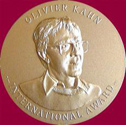
|
Entries are now being accepted for the fourth Olivier Kahn
International Award. The award will be given to young
talented scientists working in Europe in the field of Molecular
Magnetism and closely related disciplines.
The nomination entries should be sent before June 1st, 2013, by email, in one compact file (zip type) to:
Stefano Vannuzzi,
svannuzzi@instm.it |
Leibniz prize for Achim Rosch and Roderich Moessner
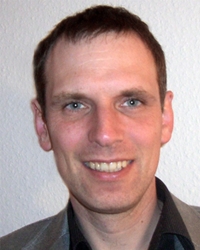
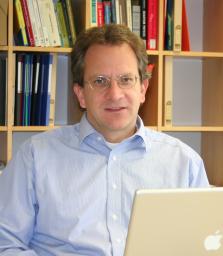
|
Prof.
Dr. Achim Rosch (Universität zu Köln) und
Prof.
Dr. Roderich Moessner (Max-Planck Institut für Physik
komplexer Systeme) share one of this years Leibniz
prizes. They receive the prize for their contributions to the
field of interacting quantum systems.
Source: DFG. |
ERC Advanced Grant for Prof. Achim Müller
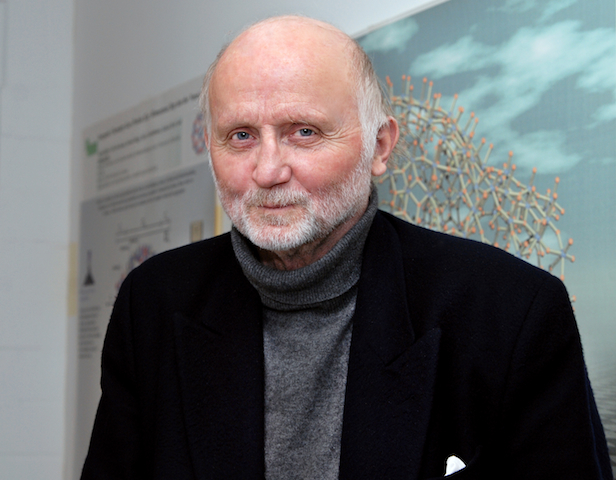
|
Achim Müller is receiving an "Advanced Grant" from the European
Research Council (ERC).
Source: Press Release Bielefeld University. |
ERC Starting Grant for Prof. Paul Kögerler
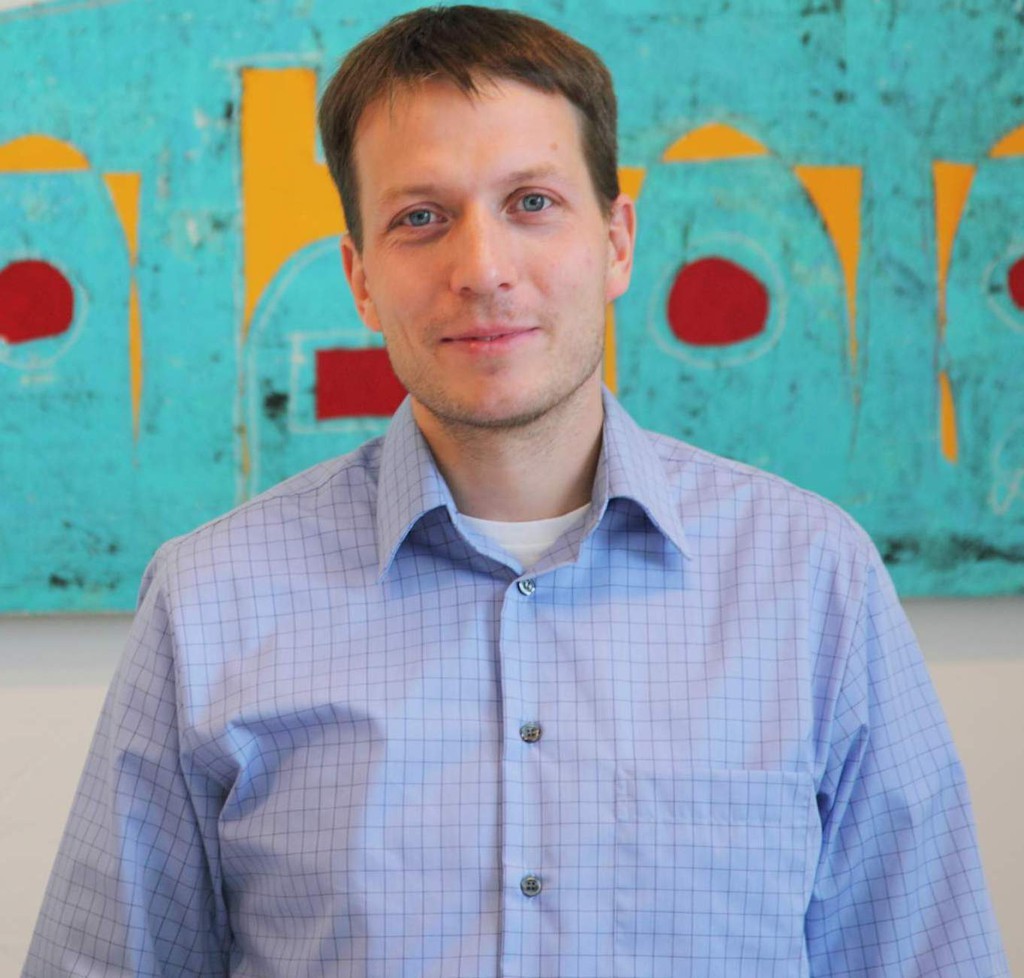
|
Paul Kögerler is receiving a "Starting Grant" from the European
Research Council (ERC).
Revolutionary innovations in microelectronics require new
materials: molecular magnets, used as integral transistor
components, for instance, are expected to offer several decisive
advantages, such as extremely low energy consumption and highly
complex switching functions that are hard to realize using
conventional semiconductor logic devices. The basis for these
properties is the joint utilization of magnetic and electronic
quantum states of single magnetic molecules.
In the "Synthetic Expansion of Magnetic Molecules Into
Spintronic Devices" project (MOLSPINTRON), Paul Kögerler
sets out to tackle one of central difficulties in molecular spin
electronics: the precise contacting of the particle. To do so he
utilizes highly stable magnetic metal oxide nanomolecules, at
whose surfaces the contacts can be made synthetically, i.e. with
atomic precision, using both conductive and nonconductive
interfaces.
Paul Kögerler, born on July 6, 1971, is a University
Professor of Inorganic Chemistry at the RWTH Aachen Faculty of
Mathematics, Computer Science, and Natural Sciences. His key
research areas are molecular magnetism, metal oxide clusters,
and their utilization in information technology and medical
diagnostics.
Source: RWTH Aachen. |
Olivier Kahn International Award 2011
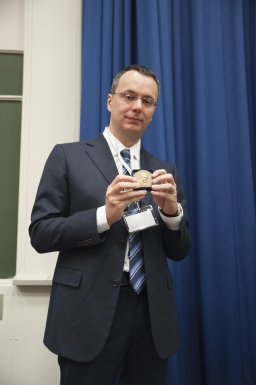
|
The European Institute of Molecular Magnetism, the chairman and the members of the Olivier Kahn Award International Jury are pleased to announce that the laureate of the third Olivier Kahn International Award is Professor Stefano Carretta of the University of Parma. The laureate, Prof. Stefano Carretta has made a major contribution to the underlying theory of molecular magnetism. The aim of his research has been twofold: the understanding of fundamental phenomena and the identification of systems suitable for technological applications, especially in the field of quantum computation. Prof. Carretta works in an outstanding team of theorists at the University of Parma and his imagination and ability to communicate very complex ideas are two of his many remarkable skills. |
The international jury delivering the Award selected the laureate among several young brilliant scientists, chemists or physicists, having contributed to the development of molecular magnetism in Europe and having provided the international community with outstanding scientific results. The jury were hugely impressed by the very high standard of the candidates.
The Award was presented on the occasion of the European Conference on Molecular Magnetism, ECMM 2011, helt in Paris, France, on November 22-25. The laureate presented an invited lecture on this occasion.
Source: EIMM.
New research centre SFB/TRR 88 funded
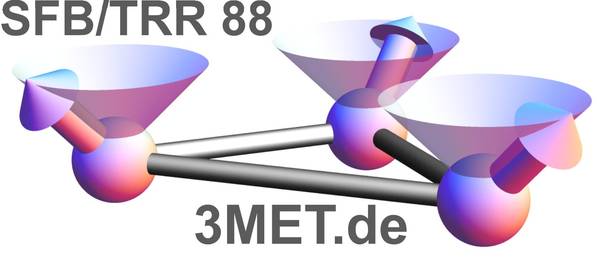
|
A collaborative research centre SFB/TRR 88 is funded by the
German Science Foundation DFG. It deals with cooperative effects
in homo and heterometallic complexes. The universities of
Kaiserlautern and Karlsruhe contribute to this initiative.
Source: Web page of SFB/TRR 88. |
Dr. Lapo Bogani receives Sofja Kovalevskaja prize 2010

|
Dr. Lapo Bogani,
Universität Stuttgart, 1. Physikalisches Institut,
receives one of the 2010 Sofja Kovalevskaja prizes. His research
will be supported by the Alexander von Humboldt foundation with
up to 1.65 Mio. Euros.
Source: German press release. |
ICMM Beijing, October 8 - 12, 2010
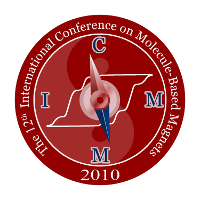
|
The website for the 12th International Conference on
Molecule-Based Magnets (ICMM) to be held in Beijing, China from
October 8 to 12, 2010, is up. The ICMM is the largest biennial
event in the interdisciplinary and growing field of Molecular
Magnetism. Quelle/Source: 12. ICMM. |
Leibniz-Preis für Professor Frank Neese

|
Professor Frank Neese,
Lehrstuhl für Theoretische Chemie der
Universität Bonn, erhält für seine herausragenden
Forschungsleistungen auf dem Gebiet der theoretischen Chemie den
Gottfried Wilhelm Leibniz-Preis, der mit 2,5 Millionen Euro
dotiert ist. Professor Frank Neese, Theoretical Chemistry, Bonn University, receives the Leibniz prize for his outstanding achievements in theoretical chemistry. Quelle/Source: DFG. |
No. 1

|
www.molmag.de is No. 1 at bing when searching for Molecular Magnetism (06/2009). |
Professorship in Physics

|
Andrei Postnikov was appointed as a professor in Physics at the Paul Verlaine University, Metz, France (05/2009). |
Centenary Lectureship 2008/09 Winner
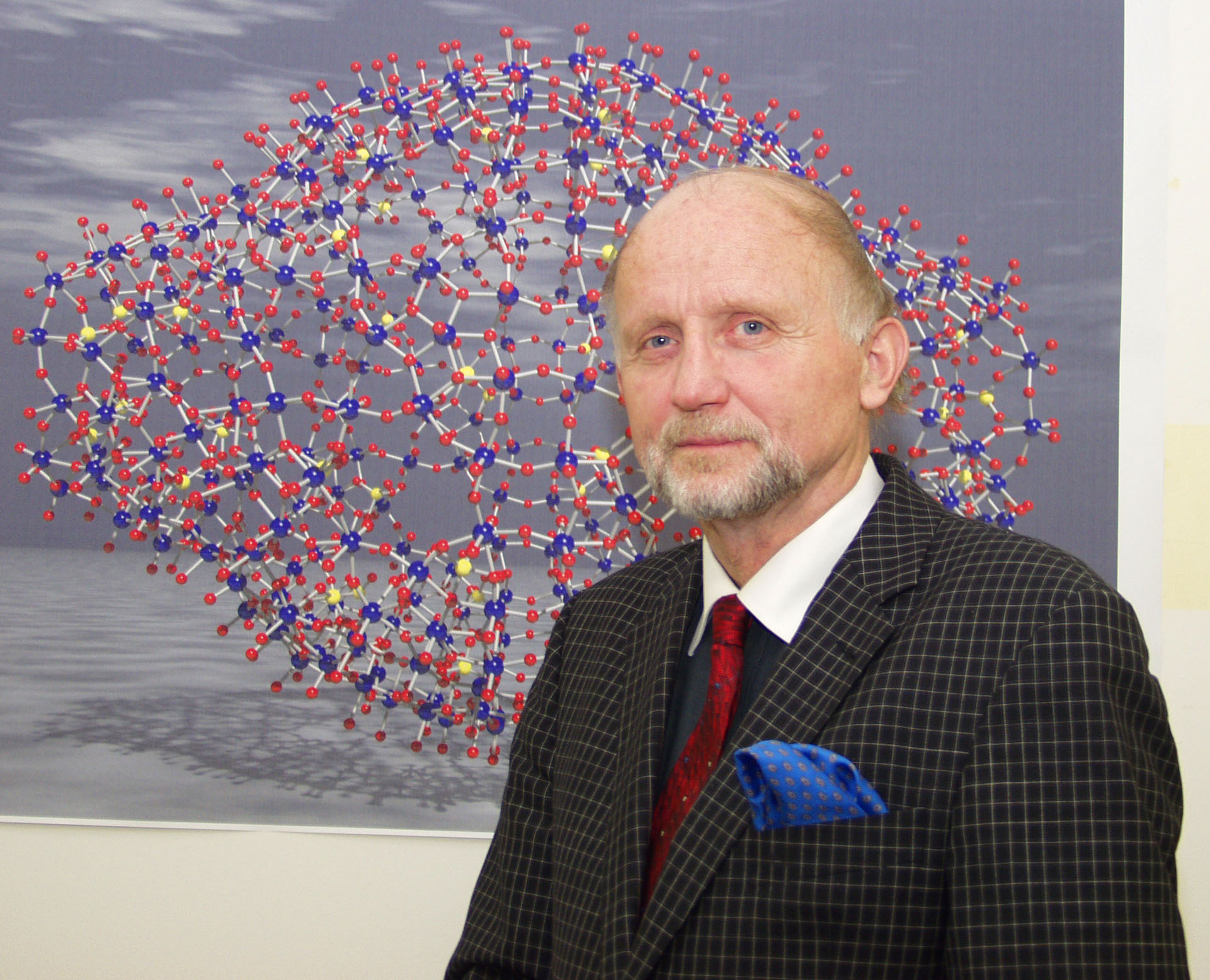
|
Achim Müller, University of Bielefeld, Germany, was
awarded the Centenary Prize (Lectureship) 2008/09 by the Royal
Society of Chemistry (London) for his development of
the field of oxometalate chemistry, especially the
synthesis of giant clusters for use as nanoscale
building blocks and the investigation of their
electronic structure and magnetochemistry.
|
Universite de tous les savoirs
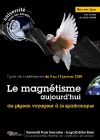
|
A french popular initiative - Universite de tous les
savoirs -
launched a programme with a series of presentations
presently given on the topic: Magnetism today :
from homing pigeon to spintronics (01/2009). Link to programme Programme listing |
Professorship in Inorganic Chemistry

|
Franz Renz was appointed as a professor in Inorganic Chemistry at the Universität Hannover (09/2008). |
2008 Olivier Kahn International Award for Dr. José Ramón Galán-Mascarós
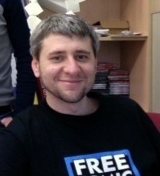
|
Dr. José Ramón Galán-Mascarós, University of Valencia, receives the 2008 Olivier Kahn International Award for his achievements in the field of multifunctional molecular magnetic materials. He attracted worldwide attention by synthesizing the first ferromagnetic molecular conductor which proved the foundation for a series of related studies exploring the chemical flexibility of the bimetallic tris-oxalate structure as a component in inorganic-organic layers, bringing together long-range magnetic order with other solid state properties. |
Mehr als nur Einzelmolekülmagnete

|
Professor Paul Kögerler,
Anorganische Chemie, RWTH Aachen, stellt in den Nachrichten aus
der Chemie, Ausgabe 56 vom Juli/August 2008, Seite 743ff. seine
Sicht auf das Gebiet des molekularen Magnetismus dar. "Der
molekulare Magnetismus steht nach einer stürmischen
Entwicklung vor veränderten Aufgaben: Es gilt, neue
physikalische Phänomene anzugehen und die bisherigen
Erkenntnisse in Modelle einer molekularen Spinelektronik
umzusetzen."
pdf file (mit freundlicher Erlaubnis des Verlages) Quelle:Nachrichten aus der Chemie, Ausgabe 56 vom Juli/August 2008, Seite 743ff |
Chemie-Preis für Professor Frank Neese

|
Professor Frank Neese,
Lehrstuhl für Theoretische Chemie der
Universität Bonn, wird am 14. November 2008 in Berlin den
diesjährigen Klung-Wilhelmy-Weberbank-Preis für Chemie
erhalten. Der mit 100.000 Euro ausgestattete Preis ist die
höchst dotierte Auszeichnung für jüngere
Wissenschaftler in Deutschland und ist dem gelernten Biologen
für seine bahnbrechenden Arbeiten zur hocheffizienten
Berechnung der Elektronenstruktur großer Moleküle
zugesprochen worden. Quelle: DHV Newsletter 8/2008 |
Bernard Barbara receives German-French physics prize

|
German press statement:
Der Franzose Bernard Barbara vom Laboratoire Louis Neel in
Grenoble wird für seine herausragenden Arbeiten auf dem
Gebiet des Magnetismus von der Deutschen Physikalischen
Gesellschaft (DPG) und der Französischen Physikalischen
Gesellschaft mit dem Gentner-Kastler-Preis 2008 geehrt. Die
Auszeichnung beinhaltet eine Silbermedaille und ist mit 1.000
Euro dotiert.
More information at
http://www.dpg-physik.de/presse/pressemit/2007/dpg-pm-2007-031.html. |
Lectureship in Inorganic Chemistry at the University of Nottingham

|
Joris van Slageren was appointed as a lecturer in Inorganic Chemistry at the University of Nottingham (10/2007). |
Professorship in Experimental Physics at the Universität Freiburg

|
Oliver Waldmann was appointed as a professor in Experimental Physics at the Universität Freiburg (09/2007). |
Professorship in Experimental Physics at the Universität Dresden

|
Hans-Henning Klauss was appointed as a professor in Experimental Physics at the Universität Dresden (10/2007). |
Professorship in Theoretical Physics at the Universität Bielefeld

|
Jürgen Schnack was appointed as a professor in Theoretical Physics at the Universität Bielefeld (01/2007). |
Professorship in Inorganic Chemistry and Molecular Magnetism at the Universität Aachen

|
Paul Kögerler was appointed as a professor in Inorganic Chemistry and Molecular Magnetism at the Universität Aachen in cooperation with the Forschungszentrum Jülich (11/2006). |
Olivier Kahn International Award

|
Wolfgang Wernsdorfer won the Olivier Kahn
International Award (10/2006). More information. |
Professorship in Theoretical Chemistry at the Universität Bonn

|
Frank Neese was appointed as a professor in Theoretical Chemistry at the Universität Bonn (04/2006). |
Professorship in Inorganic Chemistry at the Universität Bielefeld

|
Thorsten Glaser was appointed as a professor in Inorganic Chemistry at the Universität Bielefeld (08/2005). |
Spinhenge@home - Devote your lunch break to science!

|
Prof.
Christian Schröder at the Fachhochschule
Bielefeld is investigating magnetic molecules by
means of classical spin dynamics. He is also very
active in computer sciences, and by combining both
skills he and his group developed a screen saver
which performs Monte-Carlo simulations and can be
used by everybody. The screen saver, which works
similarly to seti@home, downloads problems from a
central server, solves problems, and sends back
the results. If you are interested: Learn more about Spinhenge@home and become part of it at this web site. |